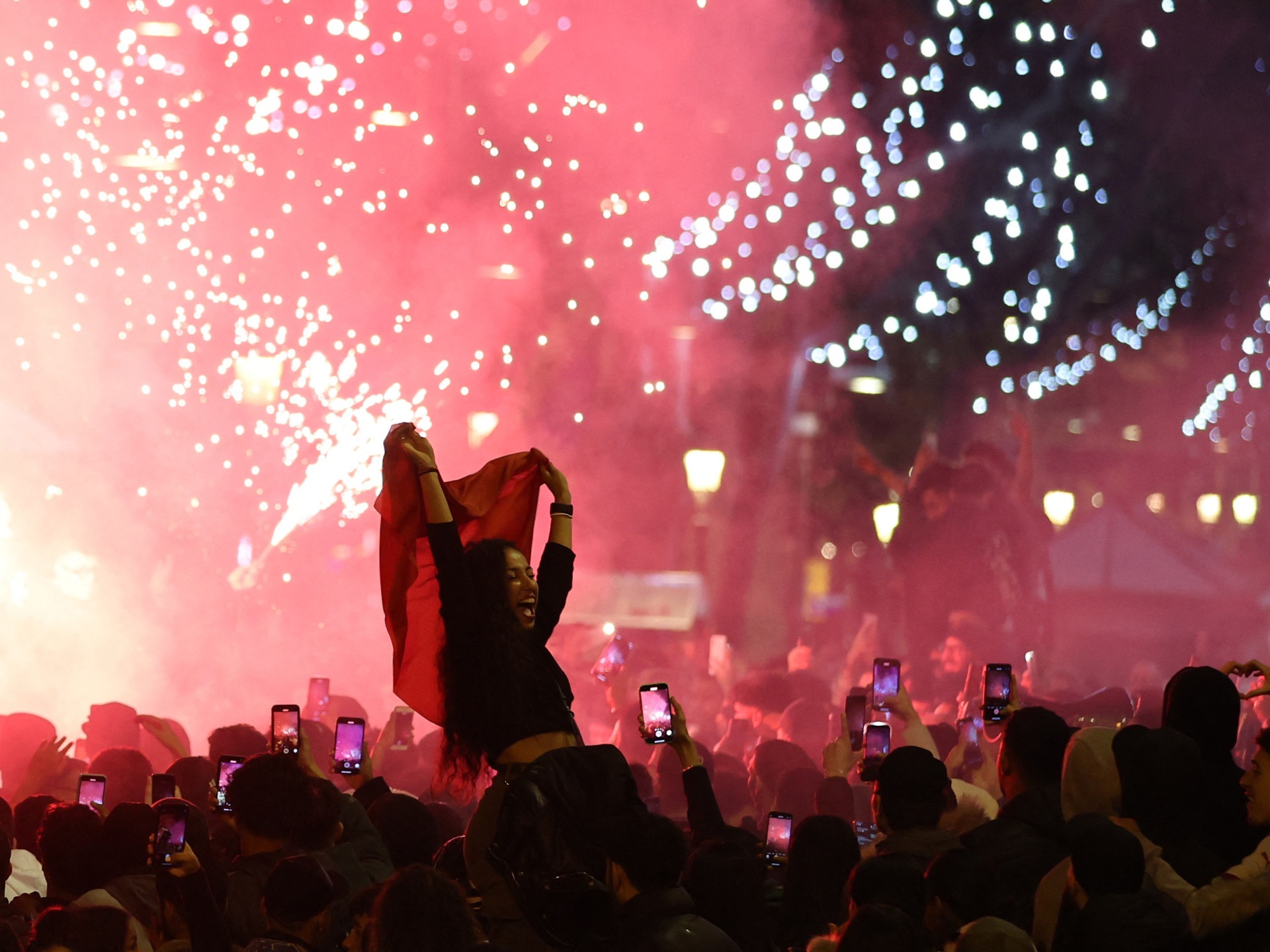Moroccan supporters flocked to Qatar looking for joy. They collectively needed something to feel happy about, removed from the many anxieties of life — an exhausting pandemic, a drought that has plagued our country, inflation and economic hardships. It seemed clear that mostly, we were all looking for a purpose, even if we did not realise it.
During the first days of the World Cup, I was mostly uninterested. I did not travel to Qatar, though like many others who work on documenting human rights abuses, I had followed the debate around the questions raised about the event this year.
As someone who grew up in a country where people kick the ball in street alleys and family feuds are born from disagreement over teams, I was also engaging, in part, in an act of self-preservation. I had gotten my heart broken too many times seeing our national squad play well but still lose. I have learned to preserve my feelings to not feel the crushing disappointment that has marked so many games since I was a child. Somewhere I believed that we were always set to fail, and I was done exposing myself to heart-wrenching sorrow.
But then the TikToks started pouring into my phone. I do not use social media, except for Twitter, and as minimally as I can because of my work, but the videos were so viral that I too got to see them. Seeing enthusiastic Moroccans cracking jokes and imposing our dialect in that part of the world viscerally fed into my deep love for football and my unconditional support for our team. Seeing Achraf Hakimi’s mother, who looks like so many Moroccan mothers, embrace her son after each victory, made my heart warm.
It was clear that the team felt comfortable in Qatar. Moroccan families felt at home in a more conservative setting, in a country whose language they spoke. Traditionally, the World Cup has been an event where Westerners, with their passport privileges, get to attend in huge numbers, while we watch from home, often unable to get the visa to travel to the country hosting the tournament.
This time was different, and the Moroccans showed up in large numbers to encourage the bearers of their nation’s flag.
The first round of the World Cup is usually predictable. The traditionally stronger teams — often the same ones again and again — make it to the knockout stages. But this time, Morocco made it to the round of 16 for the first time in 36 years, where we were up against a familiar opponent: our neighbour Spain.
As neighbours we hold a complicated relationship fraught with colonial history — we took turns colonising each other over centuries, and Spain still controls the enclaves of Ceuta and Melilla — and also contemporary diplomatic tensions. It is also the home of a large Moroccan diaspora: Hakimi, the player who sent us into the quarter-finals was born in Madrid and chose to play for the Moroccan national team over the team of his birthplace.
I am not physically in Morocco at the moment yet have never felt closer to home. I watched the game in a bar in Washington, DC with a friend, who — though not Moroccan — was rooting for us, as we sat in a bar full of supporters of Spain.
When I was young, I would, during World Cup games, roll on the floor and beg God for a miracle. I am no longer that child. But a miracle did happen. When Hakimi scored the winning penalty for us, I blew up with indescribable joy.
Commentators joked about Morocco’s performances against Belgium and then Spain. “The Moroccan team is working its way through colonial powers like me eating a box of donuts,” wrote one. Moroccans and their supporters partied in many places around the world through the night.
That win gave us back our dignity after so many losses. “Raise your head, you are Moroccan,” said a sobbing commentator in Arabic. The words resonated viscerally in ways that will take time to unpack.
It turns out we were not the only ones elated. Millions of people around the world celebrated Morocco’s win at the World Cup. At that moment, it was possible for the Global South to unite behind that single moment of sheer happiness. A friend texted me after seeing United States Congresswoman Ilhan Omar’s tweet cheering for Morocco: “Morocco has become the symbol of the victim of the West, of the underdog, of the one who never had a chance in this world and who rose above.”
It feels appropriate that this should be happening at what, in many ways, is a landmark sporting event for a post-colonial world. Instead of seeing inebriated Europeans take over cities, we are witnessing Africans and Arabs dancing, singing, and celebrating being together.
My friend, the University of Massachusetts epidemiologist Youssef Oulhote, is also one of the most fervent fans of the Moroccan side that I know. He summed up the moment for me.
“We feel pride, confidence, and hope,” he wrote to me. “We always had the feeling that we are an unlucky team in big competitions, but this time we feel that things go our way, and also that the team is solid and disciplined. That gives us hope and confidence.”
Whether Morocco win against Portugal in the quarter-finals on Saturday matters little at this point. We so badly needed this burst of optimism amid difficult times.
There is a joke doing the rounds that Morocco should bring coach Walid Regragui, fondly referred to as “avocado head” by the team’s supporters, into government and appoint him as a minister of happiness. I cannot think of a more appropriate recognition for him and his side. For, that is what this team has given all Moroccans, above all else. Happiness.
The views expressed in this article are the author’s own and do not necessarily reflect Al Jazeera’s editorial stance.
